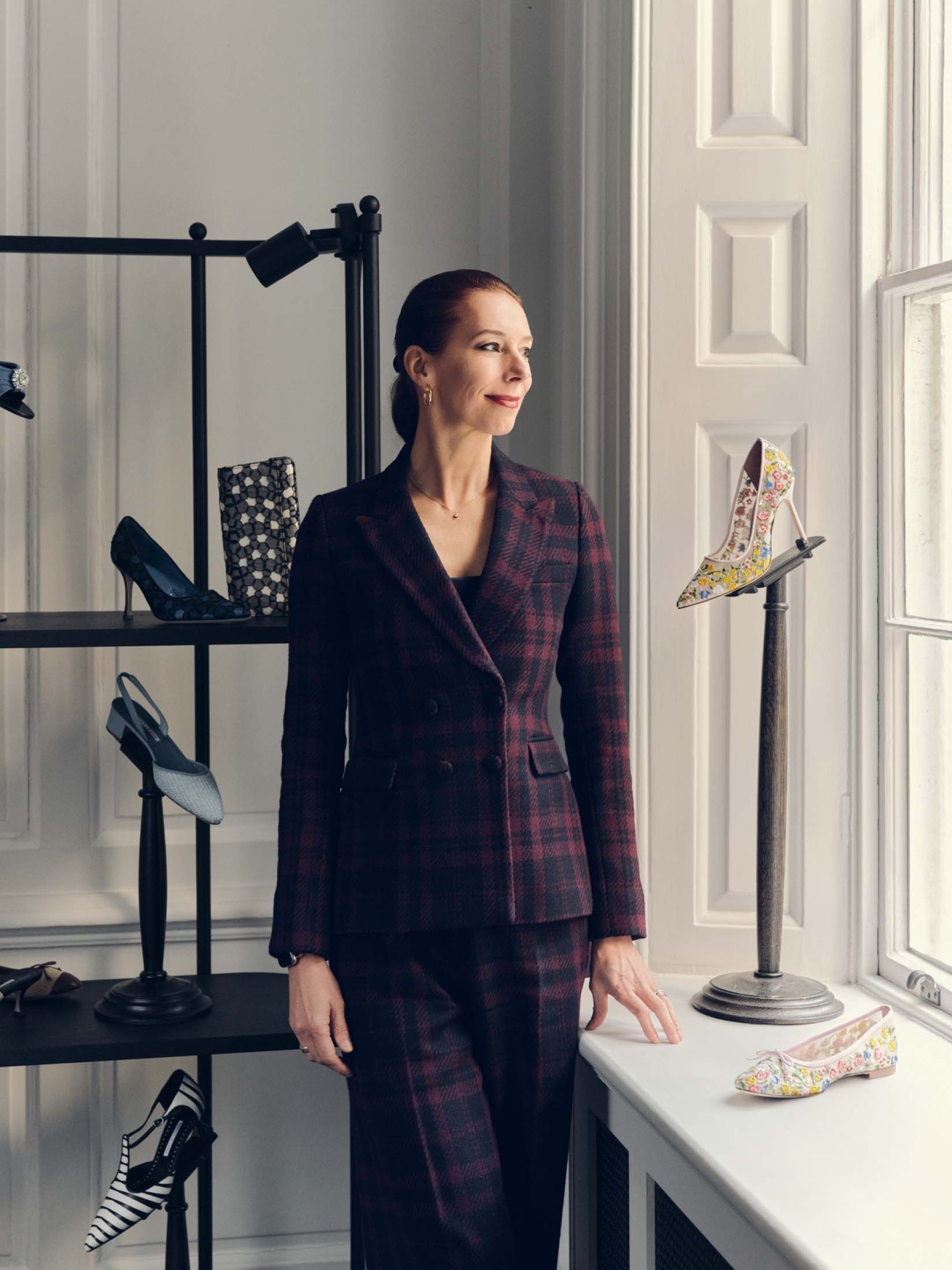Interview: Kristina Blahnik on making retail spaces speak for themselves
Plus: Stepping into her family footwear business after training as an architect.
Kristina Blahnik has been CEO of footwear brand Manolo Blahnik, first founded by her uncle, for more than a decade. Having spent much of her childhood in its London flagship, dropping by every afternoon after school, it was only natural for her to take over the family business. But not before she qualified as an architect. Even in her current role, Blahnik has continued to put her education to use, designing a number of the brand’s shops, including its new Shanghai outpost, typically combining a monochromatic palette with dynamic shelving to emphasise shoes on display.
Here, Blahnik tells us more about her design ethos and her passion for spaces that reflect
the brand’s values.

Tell us about the transition from working as an architect to becoming a CEO.
I grew up in the shoe world: my mother was the managing director of the business. My home was the shop in London’s Old Church Street. So, in many ways, becoming the CEO was coming home. As I’ve matured into the role, I’ve carried over the architect’s ability to visualise the means of reaching the end result. At Manolo Blahnik I have to imagine what the business will look like in 20 years, or what it should be known for in 500 years. That helps to keep us on the right track. We’re not losing our direction, because we have the blueprint.
How have you been approaching retail design?
When I was still at the architecture practice, I wrote an article about retail in the late 2000s. One shop to the next was exactly the same. It was very efficient and you could argue that it helped with brand recognition. But my point was that we would actually end up in a retail coma. You had no idea where you were because shops lacked local identity. For me, our shoes are almost living things. To just be seen as objects in a shop, I think, does a disservice to them.
You’ve been designing concepts unique to each location.
We’re in an experience economy now. It’s not just about consumption; we need spaces where people can connect and bring our story to life.
Where should we expect future openings?
We’re pushing into Asia. Some of the region is struggling but it’s good to enter the market when it’s quieter. Then we’re opening in Milan. I’m looking forward to when our artisans have a celebratory drink in the shop.
manoloblahnik.com


